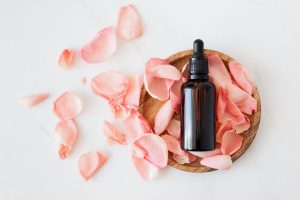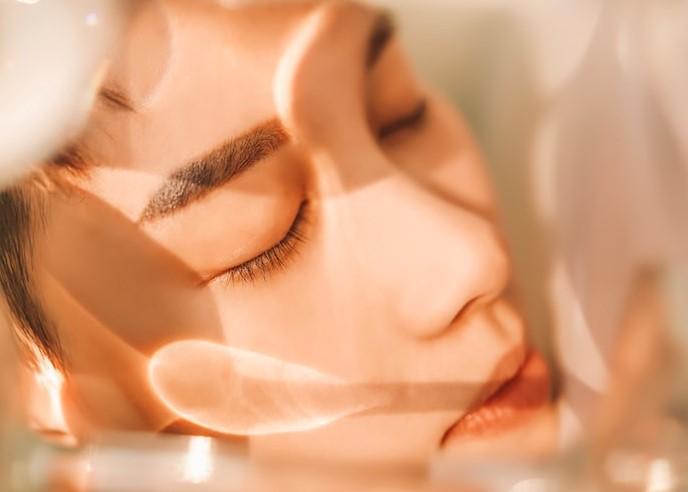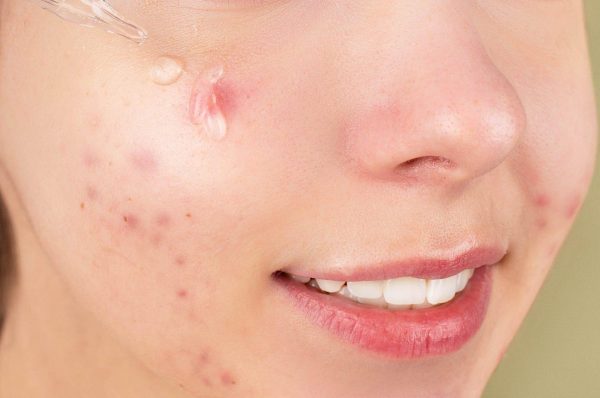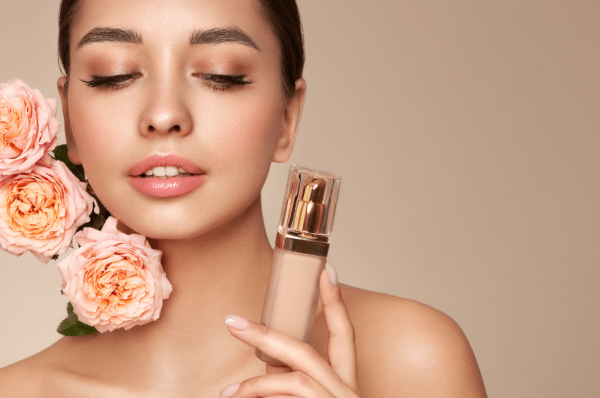In this article, you’ll learn about the link between nutrition and healthy skin, which foods to add to your diet for skin health, the key vitamins and minerals your skin is craving, and how to boost your water intake for maximum glow. Get ready to eat your way to healthy skin and a fresh-faced look you’ll love!
You’ve heard the adage “You are what you eat,” but did you know that also applies to your skin? The foods you put in your body have a direct impact on your complexion. If you’ve been struggling with skin problems or just want to achieve a healthy glow, it may be time to overhaul your diet. The good news is you don’t need expensive creams or treatments to get great skin—you just need to eat the right foods. A balanced diet with plenty of vitamins, nutrients, and hydration is the secret to your most radiant complexion yet.
Vitamin A: Skincare Superstar
Nutrition and healthy skin go hand in hand. Vitamin A is a superstar when it comes to skin health. This powerful antioxidant helps boost collagen production and cell turnover, keeping your skin firm, smooth and bright.
Get your fill of vitamin A by loading up on:
- Sweet potatoes: One medium sweet potato contains over 100% of your daily vitamin A needs. Bake them, mash them, or add them to soups and stews.
- Carrots: Crunch on raw baby carrots for a snack or add shredded carrots to salads. Just one cup of chopped carrots provides over 200% of your vitamin A requirement.
- Kale: This leafy green is one of the most vitamin A-dense foods. Try massaged kale salad, or kale chips, or add kale to soups, stews, and smoothies.
- Fish: Fatty fish like salmon, tuna, and mackerel are excellent sources of vitamin A. Aim for 2-3 servings of fatty fish per week.
Staying hydrated also helps carry these vitamin A-rich nutrients to your skin cells. Drink plenty of water to keep your skin plump, soft, and supple.
Nutrition and healthy skin are intertwined, and Vitamin A promotes skin cell turnover and collagen production, which helps reduce the appearance of fine lines and wrinkles. It also helps fade age spots and improves skin texture. For healthy, glowing skin, focus on a balanced diet with plenty of vitamin A-rich foods and hydrating beverages. Your skin will thank you for it!
Vitamin C: An Antioxidant Powerhouse for Your Skin

Vitamin C is essential for skin health and a youthful complexion. This antioxidant powerhouse helps support collagen production, protects against damage from free radicals, and promotes skin brightening.
To get your daily dose of vitamin C, load up on citrus fruits like oranges, grapefruit, and lemons. A single orange contains over 100% of your daily needs. You can also find vitamin C in broccoli, kale, strawberries, and red and green peppers.
Supplements are another option. Look for a high-quality vitamin C supplement and aim for 500 to 1,000 milligrams per day for maximum skin benefits. Vitamin C serums and creams can also help boost your levels.
Staying hydrated is key to allowing vitamin C to do its job. Drink six to eight glasses of water per day to keep your skin plump, smooth, and radiant.
With the right diet and hydration, vitamin C can work wonders for your complexion. It helps fade brown spots and acne scars, reduces inflammation, and gives skin an all-over glow. Feed your skin the antioxidant-rich foods it craves and you’ll see and feel the difference. Smooth, bright, healthy skin can be yours!
Vitamin E: The Skin’s Best Friend
Vitamin E is one of the best vitamins for your skin that balances nutrition and healthy skin. It acts as an antioxidant, protecting skin cells from environmental damage caused by free radicals like pollution and sun exposure. Vitamin E helps nourish and protect your skin in the following ways:
- Promotes Skin Healing
Vitamin E helps skin wounds and abrasions heal faster. It stimulates the production of new skin cells, which can help minimize the appearance of scars. Applying vitamin E oil directly to the skin or taking oral supplements may help reduce the severity and appearance of scars.
- Reduces Inflammation
Vitamin E acts as an anti-inflammatory agent. It can help reduce skin redness, irritation, and inflammation. The soothing properties of vitamin E make it beneficial for conditions like eczema, psoriasis, and acne. Cams and lotions containing vitamin E or vitamin E capsules may help improve inflammatory skin conditions.
- Prevents Premature Aging
Vitamin E protects skin cells from environmental damage that can cause premature aging. It helps prevent fine lines and wrinkles by protecting skin elasticity. Vitamin E creams, serums, and oils are popular ingredients in anti-aging skincare products. Ingesting vitamin E supplements or eating a diet high in vitamin E-rich foods is also beneficial for maintaining youthful skin.
- Foods high in vitamin E include:
- Almonds
- Spinach
- Sweet potatoes
- Avocados
- Broccoli
Using topical creams and lotions containing vitamin E, taking oral supplements, and consuming a balanced diet with plenty of vitamin E-rich foods are some of the best ways to keep your skin healthy, radiant, and youthful. Vitamin E truly is your skin’s best friend, so make sure you’re getting enough of this vital nutrient.
Zinc: A Mineral Essential for Skin Health
Zinc is an essential mineral for maintaining skin health and a clear complexion. This trace element plays several key roles in skin function and appearance:
- Wound Healing
Zinc helps your skin heal properly from cuts, scrapes, and blemishes. It regulates inflammation and speeds up cell regeneration so your skin can repair itself efficiently. Without enough zinc, wounds, and blemishes may heal slower and scar more prominently.
- Acne Prevention
Zinc helps control oil production and reduces inflammation in the skin. This makes it useful for preventing and managing acne breakouts. Zinc supplements or topical creams containing zinc oxide can help clear up mild to moderate acne when used regularly.
- Skin Cell Growth
Zinc is vital for the growth and division of new skin cells. It promotes skin exfoliation and rejuvenation, keeping your complexion looking youthful and radiant. A zinc deficiency can lead to skin that appears dull, flaky, or prematurely aged.
- Antioxidant Support
Zinc works with other antioxidants like vitamins A, C, and E to protect skin cells from environmental damage and slow signs of aging. It helps neutralize free radicals that can lead to wrinkles, age spots, and skin dullness over time.
Nutrition and healthy skin are closely related, and zinc is crucial for maintaining skin health.
Hydrate for a Healthy Glow: Why Water Is Crucial for Your Complexion
Your skin is made up of cells that need water to function properly. When you’re dehydrated, your skin is the first organ to show signs. Gulping down water is one of the easiest ways to boost your skin health and get that coveted glow.
Drink 6-8 glasses of water per day to keep your skin hydrated. This flushes out toxins, carries nutrients to your skin cells, and plumps up your skin, minimizing the appearance of fine lines. If you tend to get breakouts, drinking plenty of water can help clear your skin by getting rid of waste and oil buildup under the skin’s surface.
Water also helps keep your skin moisturized. Use a humidifier if the air in your home is dry. Moisturize daily, especially after washing your face. Look for a lightweight moisturizer containing hydrating ingredients like hyaluronic acid, glycerin, ceramides, and dimethicone.
Check out our website to shop for hyaluronic acid serum.
Eating water-rich foods is another way to up your hydration. Snack on cucumbers, celery, watermelon, berries, and leafy greens which provide water and skin-healthy nutrients. Broths, soups, and stews are also great options for adding moisture from the inside out.
Staying hydrated is one of the best things you can do for skin health and your overall wellness. Make it a habit to sip water and eat hydrating foods throughout the day to keep your skin nourished, supple, and positively glowing. Your complexion will thank you!
FAQs
Will drinking more water hydrate my skin?
Yes, staying hydrated by drinking plenty of water is essential for skin health and a glowing complexion. Water gives skin resilience, helps carry nutrients to cells, and removes waste. As a rule of thumb, aim for 6-8 glasses of water per day to keep your skin hydrated. You’ll notice the difference—your skin will look dewy, supple, and fresh.
What vitamins and minerals should I focus on?
Some of the key vitamins and minerals that balance nutrition and healthy skin include:
- Vitamin A (beta carotene): Promotes skin cell turnover and protects from sun damage. Find it in sweet potatoes, spinach, and cantaloupe.
- Vitamin C: Acts as an antioxidant, protects from sun damage, and promotes collagen production. Citrus fruits, broccoli, and bell peppers are excellent sources.
- Vitamin E: Acts as an antioxidant and protects skin cell membranes. Almonds, spinach, and avocado contain high amounts.
- Zinc: Important for skin cell regeneration, wound healing, and acne prevention. Oysters, beef, pumpkin seeds, and cashews are zinc-rich.
- Omega-3 fatty acids: Reduces inflammation in the skin and provides hydration. Fatty fish like salmon and sardines are the best sources. Flax and chia seeds also contain omega-3s.
Conclusion
So there you have it, the keys to unlocking your healthiest, glowing skin are right in front of you. Make a few simple swaps in your daily diet by adding more of the good stuff like fatty fish, leafy greens, and fresh fruit and cutting back on excess sugar, unhealthy fats, and processed junk. Stay hydrated, get enough sleep, manage your stress, and your skin will thrive. You’ll see and feel the difference in no time with a smoother, clearer, more radiant complexion. Your skin is a reflection of your overall health and wellness. Feed your body well and your skin will shine through. Eat your way to a lifetime of healthy, beautiful skin – you deserve nothing less!







Comments (4,174)